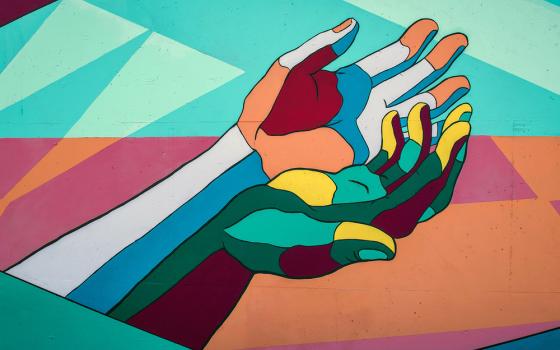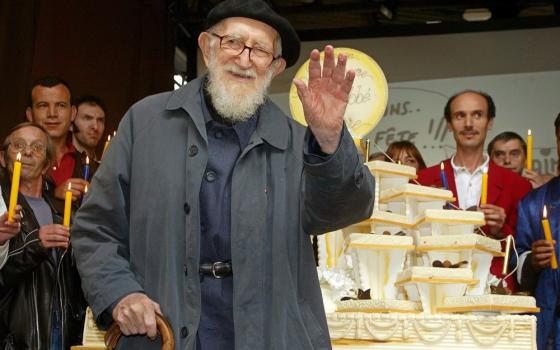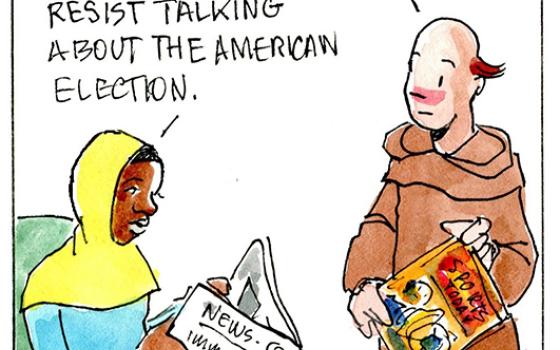As Christians in Nigeria face new threats from the militant Islamic Boko Haram movement, following Christmas Day church bombings with a death toll that the country’s Catholic bishops say now stands at 200, two new reports suggest the Nigerian drama is part of a global pattern of anti-Christian violence.
Fides, the Vatican’s missionary news agency, released on Dec. 31 its annual list of Catholic pastoral workers killed during the past year. The report found that 26 priests, religious and laity lost their lives in 2011, in locales stretching from South Sudan and the Philippines to Colombia and India.
Open Doors, an evangelical group that monitors anti-Christian persecution, issued its annual “World Watch List” in early January. It asserts that at least 100 million Christians worldwide face interrogation, arrest, violence and death, with North Korea topping the list of violators, followed by Afghanistan, Saudi Arabia, Somalia and Iran.
Although Nigeria finished in just 13th place, it’s the violence there that looms especially large at the moment. Some observers worry that if attacks on Christians are not swiftly curbed, it could trigger a wider religious war in Africa’s largest nation.
With a total population of roughly 170 million, Nigeria is also the world’s largest mixed Muslim/Christian society. Christians dominate the country’s south and Muslims the north, but each area has a sizeable minority of the other faith. Imam Sani Isah, leader of the Waff Road Mosque in the northern city of Kaduna, says that Nigeria is like “Saudi Arabia and the Vatican rolled into one.”
On Jan. 3, a spokesperson claiming to represent Boko Haram announced that Christians had three days to evacuate the north or face new attacks. On the day the deadline expired, scattered bomb blasts rocked cities in the north.
Boko Haram, which in the local Hausa language means “Western education is prohibited,” had earlier claimed responsibility for the Christmas attacks on three churches, including St. Theresa Catholic Church just outside the capital of Abuja, and a popular Pentecostal church in the north called Mountain of Fire and Miracles Church.
Those bombings capped a series of attacks on Christian targets over the last nine months that have left an estimated 800 people dead and dozens of churches and Christian-owned business gutted. Just six days before the Christmas bombings, militants wielding firearms and machetes attacked a Catholic parish in Kaduna. Five people died and six were injured, including a pregnant woman and a 3-year-old girl.
Analysts debate whether Boko Haram is actually an organized terrorist group with a coherent ideology and command structure, or whether it’s more akin to a label used by disparate Islamic factions and even criminal gangs. For Christians on the receiving end of the mayhem, however, such distinctions mean relatively little.
Some Christian leaders have threatened to fight back if the government of President Goodluck Jonathan, himself a Christian, doesn’t take aggressive steps to curb the violence.
When a wave of religious violence hit Nigeria in the 1990s, armed Christian militias formed to defend churches. Evangelical Pastor James Wuye, a former militia leader who today runs an interfaith mediation center along with a Muslim imam, acknowledged in a 2005 interview that these armed Christian bands sometimes passed from defense to offense. He lost his own hand, he said, blowing up a bridge, an incident his group blamed on Muslims as a pretext for launching an assault.
The president of the ecumenical Christian Association of Nigeria, Ayo Oritsejafor, has called on Christians to take up arms again. “Why should anybody come and kill you in your house?’ he said in late December. “Protect yourself, protect your place of worship, protect your properties.”
John Praise, general overseer of Dominion Chapel International Churches in Abuja, urged Christian denominations across the country to raise “young people to defend the church because nobody has the monopoly of violence.”
“People say, ‘When they slap your cheek, you turn the other.’ We have turned both, and they have slapped us. There is nothing else to turn,” Praise said.
Nigeria’s Catholic bishops have not joined the call for armed resistance, but they have issued an urgent plea for international assistance. Archbishop Ade Job, president of the Nigerian bishops’ conference, called on the Nigerian government “to recall retired experts in criminology and employ foreign experts in this field to assist the active security agents to put an immediate end to the Boko Haram menace.”
Current events in Nigeria form part of a larger global picture of anti-Christian violence.
The Fides list of pastoral workers killed during 2011 covers only church personnel, as opposed to individual believers. It documents the deaths of 15 pastoral workers in Latin America during the past year, six in Africa, four in Asia, and one in Europe.
Once again, Colombia was the deadliest place in the world for Catholic pastoral workers, with six priests and one layperson killed in 2011. Between 1984 and 2011, a total of two bishops, 79 priests, eight men and women religious, and three seminarians have been killed in Colombia, an overwhelmingly Catholic country racked by both a long-running civil war and the drug trade.
Much of the violence described in the Fides report does not have specifically religious roots, even if the pastoral workers put themselves in harm’s way on the basis of their faith. Several of the 26 people killed during 2011 lost their lives in robberies, while others were targeted for their political stands or for exposing criminal activity.
Mary Elizabeth Macías Castro, for example, was a blogger and a leader in the Scalabrian Lay Movement in Mexico whose decapitated body was found on Sept. 24 on a road near the city of Nuevo Laredo. The 39-year-old had exposed the activities of drug cartels, using a pseudonym, on both Twitter and a local website. A computer keyboard was left near her body along with a poster-sized note saying, “I am here because of my reports.”
According to the New York-based Committee to Protect Journalists, Castro is the first journalist in the world killed for use of social media.
In northern India, Sr. Valsa John, a member of the Sisters of Charity of Jesus and Mary, was killed on Nov. 15. Local sources charged that she was targeted for her work defending members of Indian’s tribal underclass against expropriation of their land by local coal mining companies.
Meanwhile, Open Doors’ World Watch List once again has North Korea in the top spot for general anti-Christian persecution. According to the report, a quarter of the country’s estimated 200,000 to 400,000 Christians are in labor camps. The anti-Christian campaign is so thorough, the report says, that a North Korean with Christian grandparents is disqualified from anything but low-level jobs.
The other nine nations on the World Watch List’s top 10 are all majority Muslim states. All told, the consensus estimate for the number of Christians killed for their faith each year around the world is 150,000.
[John L. Allen Jr. is NCR senior correspondent. His email address is jallen@ncronline.org.]




